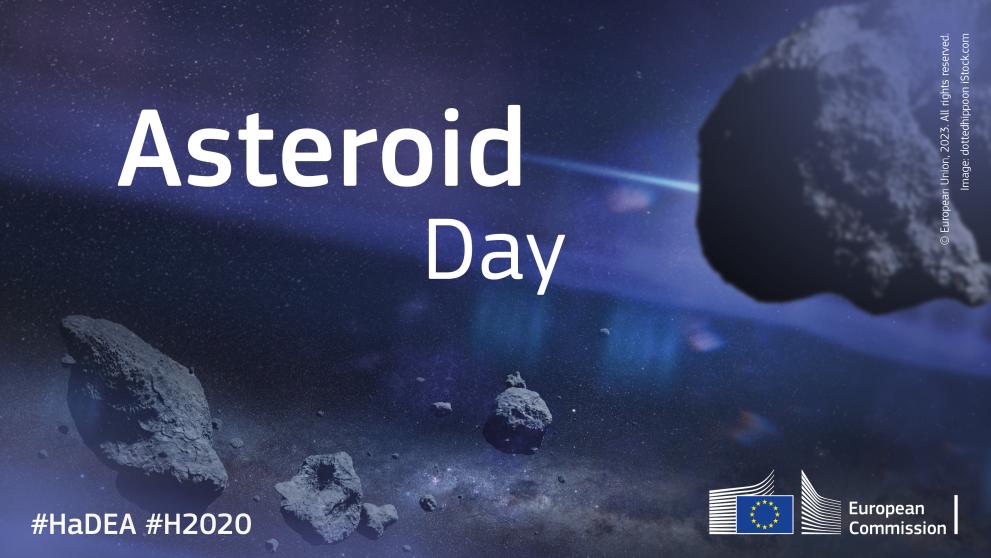
Asteroid Day, held annually on June 30, aims to raise public awareness about asteroids and the importance of defending Earth from future impacts.
Through its Horizon programmes, the EU funds research projects focusing on understanding the composition and orbits of Near-Earth Objects (NEOs) and developing new technologies to study them closely, supporting planetary defence and future asteroid exploration missions.
Discover three projects managed by HaDEA:
- NEO-MAPP played a pivotal role in studying NEO bodies. It analysed and modelled the internal structure of asteroids and verified its findings through the NASA’s DART asteroid impact in October 2022. The project aims to understand the internal structure of asteroid bodies and predict their behaviour when subject to an impact for planetary defence purposes. It is also developing data analysis tools in preparation of the upcoming ESA HERA mission, due to launch in October 2024. Additionally, the project is creating new scientific instruments to study asteroids up-close in future missions, some of which will be tested on board the CubeSats of the HERA mission.
- NEOROCKS is performing a wide range of observational campaigns across the globe in search of small and faint objects, using telescopes equipped with state-of-the-art instrumentation and performing observations at different wavelength ranges. The project’s aim is to determine the asteroids’ dynamical and physical properties. Once identified the NEOs can be tracked at any time and an orbit prediction is calculated to assess the risk they pose to Earth. So far, the project has found hundreds of new NEOs. The identified objects are collected in a database, which is constantly updated and open to the astronomical community. This database will continue to be updated also after the project ends, and it will be the main reference for the NEO scientific community.
- PIONEERS: The project is developing two advanced seismometers for planetary exploration. These instruments measure the seismic movements of the bodies they operate on. The project is developing a very high accuracy broadband seismometer, which will be the updated version of the seismometer currently on Mars as part of the NASA InSight mission. PIONEERS is also working on a more compact instrument which can be installed onto small CubeSats to study small bodies like asteroids and comets. By enabling the study of asteroids’ interior composition and mechanical properties, the instrument will significantly contribute to the understanding of asteroids’ behaviour, which is vital for effective planetary defence. Watch the video presenting the project developments.
Background
Horizon 2020 (H2020) was the EU’s research and innovation funding programme between 2014 and 2020. Horizon Europe is the current research and innovation programme of the EU for the period 2021-2027. Horizon Europe Cluster 4 – Space is supporting the evolution of the operational EU Space Programme components and fosters the competitiveness of the European Space sector as a whole.
Relevant links
Details
- Publication date
- 30 June 2023
- Author
- European Health and Digital Executive Agency
- Programme Sector
- Space
- Tags
- Digital single market
- Digital technology
- Digital transformation
- EU financing
- EUFunded
- Innovation
- Scientific article
